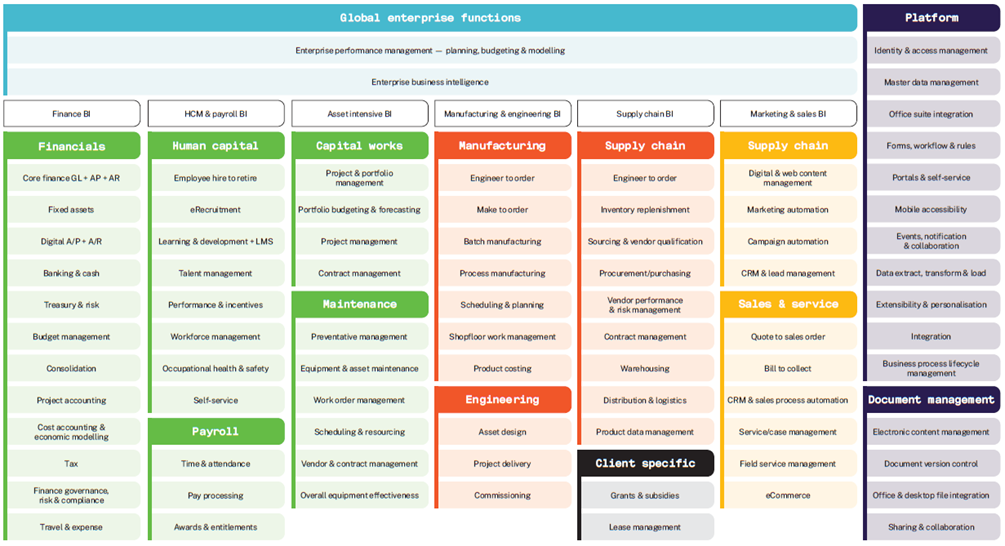Exent’s technology modernisation strategy, led by the CFO, resolved operational challenges for a rapidly growing client. The accelerated ERP sourcing and selection exercise, approved on its first board presentation, facilitated cloud migration and streamlined operations in key areas like Human Resources, Payroll, Finance, Asset Management, Supply Chain, and Business Intelligence. The program achieved comprehensive digital transformation.
CHALLENGE
Exent’s client had experienced very strong organic growth that had taken them to the edge of their legacy system capabilities. They identified multiple areas of the business that were struggling to deliver quality service to internal and external customers at scale, inefficiencies in managing process, challenges in reporting effectively on operations, and difficulties in adequately managing risk.
In a geographically broad business with offerings in Home Care, Residential Aged Care, and Retirement Living there were known impacts on processes spanning Finance, Human Resources, Learning & Talent, Projects, Procurement and Supply Chain, Asset Management and Business Intelligence.
Exent, under the sponsorship of the Chief Financial Officer, was engaged to produce a technology modernisation and replacement strategy informed by evaluating high-fit, cloud-based solutions across the broad scope areas above. This engagement would also define a strategic benefits case that articulated the internal staffing efficiencies, revenue enablement at scale, and operational improvements that would ensure the organisation could continue to scale up.


